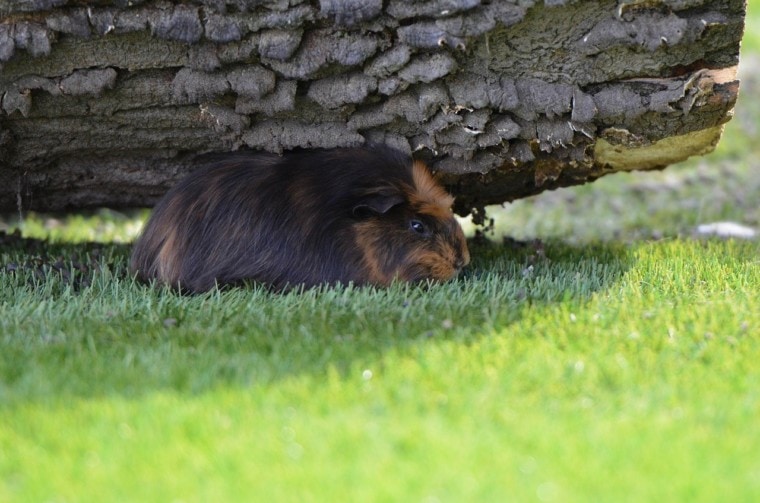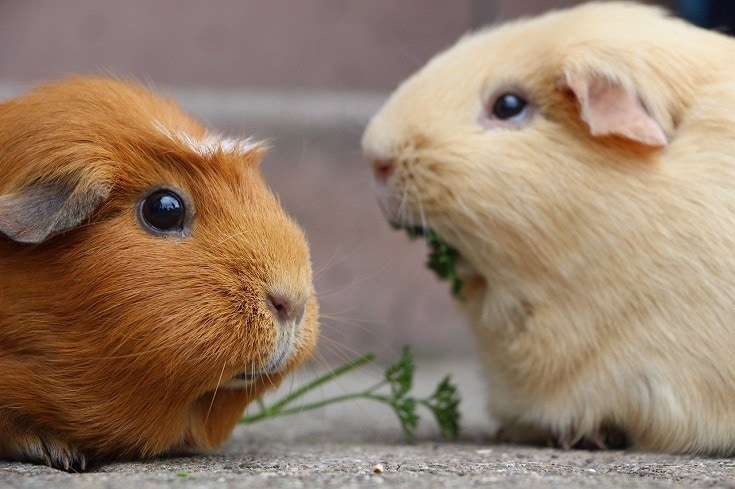
If you’ve owned guinea gigs for any lengthy period, chances are high that you’ve seen your guinea chewing on their own poop! This may seem unnatural and even disturbing, especially for a novice guinea pig owner.
The truth is that the little pellet morsel that you see your guinea happily feasting on is considered normal behavior. Confused? Don’t worry!
In this article, we look at the reason behind guineas eating their own poop, and hopefully, you’ll soon understand the practice better and why it is perfectly normal.
Coprophagy
Guinea pigs actually excrete two different types of pellets, though both kinds are referred to by most of us simply as “poop”. Like many other rodents, their first pellet has nutritional value and can be consumed for a second round of digestion. These pellets are known as cecotropes. The act of acting cecotropes is known as coprophagy.
The second pellets a guinea pig produces are not typically not consumed. The average transit time for food through a guinea pig’s gut is 2 hours; however, if the time for second pass feeding by coprophagy is factored in, the time for digestion increases to approximately 20 hours.
Guinea pigs usually eat their cecotropes, but they don’t seem to do this as readily as other animals (such as rabbits). At times, young guinea pigs can be seen eating their mother’s cecotropes, and obese or pregnant guinea pigs have been observed eating the cecotropes of other guinea pigs.
Nutritional Benefits of Coprophagy
Though coprophagy seems to be a very important part of a guinea pig’s daily routine, its complete nutritional benefits are not yet fully understood for guinea pigs. It is thought that the primary nutritional benefit of coprophagy in guinea pigs is for B vitamins. In this aspect, guinea pigs are much like rabbits.
However, guinea pigs only seem to extract a few B vitamins from their cecotropes. Of the 10 B vitamins, guinea pigs require seven from their diet. Conversely, rabbits only require three of the B Vitamins from their diet and are able to obtain the rest from their cecotropes. This could explain why unlike guinea pigs, rabbits are cecotrophic (they almost immediately eat their cecotropes).
If guinea pigs aren’t allowed to eat their cecotropes, they lose weight, digest less fiber, and excrete more minerals in their feces. The negative consequences of preventing cecotrophy indicates that though the nutritional benefits of this behavior are still not completely understood in guinea pigs, it is nonetheless likely that it is an important part of their digestive metabolism and health.

Final Thoughts
Not only is guineas eating their own poop perfectly normal and natural, but it is also essential for their health. Many small mammals perform the same practice, and there is actually more reason to worry if they are not eating their poop! The next time that you notice your guinea eating their poop, you can rest easy knowing that they are healthy and happy and performing a perfectly natural practice.
Related Reads:
Featured Image: Pixabay









